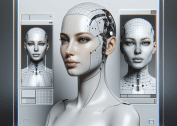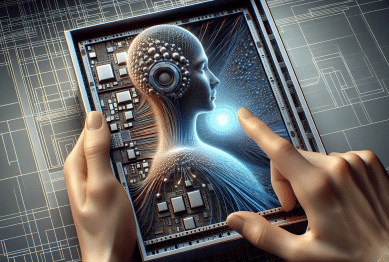Quantum computing is reshaping what’s possible across science and technology. This article explores how quantum processors work, their real-world applications, and challenges scientists solve as they build a new computing era.
Exploring Quantum Computing Basics
Curiosity drives the quest to understand quantum computing, a technology revolutionizing how we process information. Unlike classical computers relying on bits that represent zeros or ones, quantum computers use quantum bits or qubits. Qubits leverage phenomena like superposition and entanglement to exist in multiple states simultaneously, allowing calculations at speeds previously unimaginable. This fundamental shift creates the groundwork for quantum processors that can tackle complex simulations, optimization, and codebreaking tasks far beyond the reach of conventional systems.
Superposition enables a qubit to hold a zero, a one, or both at once—granting exponential growth in computational power with each added qubit. Entanglement, a separate quantum phenomenon, means that the state of one qubit becomes intrinsically linked to another, no matter the physical distance. These properties allow quantum algorithms to process vast combinations of possibilities in a fraction of the time traditional computers would need. The outcome? Quantum systems may solve chemistry or materials challenges, model financial markets, or optimize logistics routes more efficiently than any previous digital tech.
Understanding quantum computing also requires grappling with quantum decoherence—the tendency for fragile quantum states to collapse under interference from the environment. Engineering solutions like cryogenic cooling and error correction codes are crucial to keep computations stable. While these obstacles are substantial, leading physics laboratories and technology giants continue to push the boundaries with next-generation qubit designs and new quantum programming languages. Researchers aim to make quantum computing practical, reliable, and scalable for everyday use.
The Unique Power of Quantum Processors
Quantum processors are built on qubits rather than classical bits, transforming their capacity to solve certain problems. In cryptography, for example, a quantum computer could solve factoring challenges that would take centuries for traditional machines, potentially transforming data security practices worldwide. Scientists are rapidly developing quantum-safe encryption standards to anticipate quantum breakthroughs and ensure private communications remain secure. The speed at which quantum algorithms might outpace current cryptographic defenses is why cybersecurity experts are closely watching.
Materials development is another area where quantum processors show promise. Simulating the interactions of atoms and molecules—an impossible feat for even the fastest supercomputers—becomes accessible through quantum models. This can accelerate drug discovery, battery design, and the quest for new superconductors. Companies and research institutions see massive potential to shave years off innovation cycles, cut costs, and open up entirely new markets by using quantum simulation for chemistry and physics problems previously believed to be intractable (Source: https://www.technologyreview.com/2022/07/22/1055482/quantum-simulations-chemical-reactions).
Optimization is another superpower for quantum computing. Many complex planning and scheduling problems—like routing hundreds of delivery trucks, minimizing energy loss in grids, or managing stock portfolios—can be recast as optimization puzzles. Quantum algorithms excel at exploring possibilities in parallel, potentially uncovering strategies or solutions not seen before. As industries seek to maximize efficiency and adaptability, quantum computing’s application to optimization grows even more compelling.
Potential Breakthroughs in Real-World Applications
Researchers anticipate that quantum computing’s most immediate impact may be felt in pharmaceuticals and healthcare. Quantum capabilities allow for in-depth molecular modeling that reduces the guesswork in drug discovery. This means more targeted therapies, faster screening for possible treatments, and insights into previously misunderstood diseases. Leading universities and pharmaceutical companies collaborate with quantum startups to accelerate the drug pipeline and personalize medicine for a range of health conditions (Source: https://www.nature.com/articles/d41586-021-00332-8).
Climate modeling and weather forecasting could also benefit. Quantum computers can handle vast amounts of environmental data and model atmospheric dynamics more accurately, potentially offering earlier warnings for extreme weather events. This power to predict and simulate enables better decisions in agriculture, disaster planning, and energy management. By harnessing the computation of quantum systems, meteorological offices may refine forecasts, inform public policy, and even help mitigate the effects of climate change (Source: https://www.ibm.com/blog/quantum-climate-change).
Another practical use? Improving artificial intelligence and machine learning. Quantum machine learning algorithms show promise in recognizing patterns, classifying data, and training neural networks more efficiently. This can enhance everything from autonomous vehicles to personalized recommendations in digital entertainment. Tech giants and research labs invest heavily in experiments to blend quantum hardware with emerging AI techniques, looking for that breakthrough where quantum advantages become clear in data science and beyond.
Challenges Facing Quantum Computing Development
Quantum computing also has hurdles to jump. Quantum systems remain sensitive to minute disturbances—vibrations, temperature changes, or electromagnetic waves—all can disrupt the quantum state, causing computational errors. These fragile environments require sophisticated shielding and cooling technologies, often demanding temperatures colder than outer space. Scaling up quantum systems to include more consistently reliable qubits remains a pivotal engineering challenge (Source: https://www.nist.gov/news-events/news/2022/09/quantum-computing-faces-challenges).
Another hurdle is error correction. Even with advanced design, quantum computers experience errors much more frequently than their classical counterparts. Researchers are pioneering new quantum error correction techniques, seeking to spot and fix errors before calculations collapse. These advances are critical to moving from laboratory prototypes to real-world quantum machines capable of reliably tackling industry-scale computational problems.
Commercializing quantum computing presents additional challenges. High costs, the need for specialized knowledge, and the absence of a universally accepted programming framework slow down widespread adoption. However, open-source quantum development environments and cloud-based quantum simulators are making experimentation easier for scientists, students, and startups. As more talent enters the ecosystem, the pace of breakthroughs and practical applications may accelerate. The transition from promise to practice will define the next chapter in quantum technology.
Preparing for a Quantum Future
The looming impact of quantum computing prompts industries and governments to reassess strategies in education, cybersecurity, and research. Efforts are growing to support quantum workforce development—offering free quantum computing courses, online certifications, and collaborative programs between academia and high-tech firms. Exposure to quantum programming, linear algebra, and quantum mechanics prepares the next generation of researchers for opportunities beyond traditional computer science (Source: https://quantum.country/qcvc).
Governments are prioritizing quantum research as a matter of national competitiveness and security. Global investments increase in quantum hardware, software, and cybersecurity research to ensure national infrastructure is ready for the first functional quantum computers. Cross-disciplinary initiatives foster collaboration among physicists, engineers, mathematicians, and policymakers to develop ethical, secure, and socially beneficial uses of quantum technologies (Source: https://www.nsf.gov/news/special_reports/quantum/).
Yet, society must also think critically about responsible quantum innovation. Experts are debating quantum ethics, exploring guidelines and frameworks for managing the risks and benefits of powerful quantum algorithms. Ensuring an inclusive and equitable transition is an ongoing conversation, as access to quantum resources could influence economic and social trends. Learning how quantum computing might change core technologies, privacy standards, and daily life helps people and organizations make more informed choices as the technology matures.
Everyday Impacts: How Quantum Computing Could Affect You
The ripple effects of quantum technology could reach into everyday life—sometimes quietly. Advanced cybersecurity powered by quantum-safe cryptography may protect digital identities and financial transactions. Quantum-enhanced AI could help route traffic efficiently, personalize learning, or improve virtual assistants. While the technology may seem removed from daily routines, its applications are being woven into tools and services regularly relied upon.
In healthcare, quantum improvements in drug discovery or diagnostics could mean faster treatments or new medical solutions. For individuals interested in sustainability, quantum-powered simulations may inform cleaner energy grids, efficient transportation, or precise weather predictions for farming. The drive to solve real-world challenges is likely to keep quantum research centered on issues that benefit everyone—not just scientists or tech companies.
Staying informed is the simplest way to prepare. As quantum computing moves from research labs to commercial services, courses and news platforms keep citizens, employees, and leaders up to date. The quantum revolution is not just about the next leap in processor power—it’s about learning, adapting, and contributing as this foundational technology takes shape.
References
1. National Institute of Standards and Technology. (2022). Quantum Computing Faces Challenges. Retrieved from https://www.nist.gov/news-events/news/2022/09/quantum-computing-faces-challenges
2. IBM. (n.d.). Quantum Computing and Climate Change. Retrieved from https://www.ibm.com/blog/quantum-climate-change
3. Massachusetts Institute of Technology. (2022). Quantum Simulations Tackle Chemical Mysteries. Retrieved from https://www.technologyreview.com/2022/07/22/1055482/quantum-simulations-chemical-reactions
4. Nature. (2021). Quantum Computing in Drug Discovery: Real Insights. Retrieved from https://www.nature.com/articles/d41586-021-00332-8
5. Quantum Country. (n.d.). The Quantum Computing and Workforce Certificate. Retrieved from https://quantum.country/qcvc
6. National Science Foundation. (n.d.). Quantum Leap: NSF’s Exploratory Initiative. Retrieved from https://www.nsf.gov/news/special_reports/quantum/










 What You Need to Try for a Thriving Indoor Garden
What You Need to Try for a Thriving Indoor Garden 

